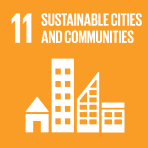Redistributive impact of social spending

- Author: United Nations
- Main Title: Social Panorama of Latin America 2005 , pp 161-171
- Publication Date: September 2006
- DOI: https://doi.org/10.18356/43b8df0c-en
- Language: English
Despite the fact that most countries in the region show a low degree of progressiveness of social spending, mainly because of the concentration of resources allocated to social security and protection in the higher–income groups, the redistributive impact on income is still significant. It not only corrects to some extent the poor distribution of primary income observed in most of the countries, but also results in a substantial increase in income, and more generally in the well–being, of the poorest groups. For these groups, the most important contribution is made by expenditure on human capital (education and health), an investment that supports long–term strategies against poverty and the reproduction of poverty. In the higher–income groups, the public contribution to social security is more significant, especially in relation to retirement and other benefits. Unfortunately, the impact of social spending on household income is much less significant in the poorest countries, as the levels of resources they allocate to social spending are low.
-
From This Site
/content/books/9789213633847s007-c007dcterms_title,dcterms_subject,pub_keyword-contentType:Journal -contentType:Contributor -contentType:Concept -contentType:Institution105



